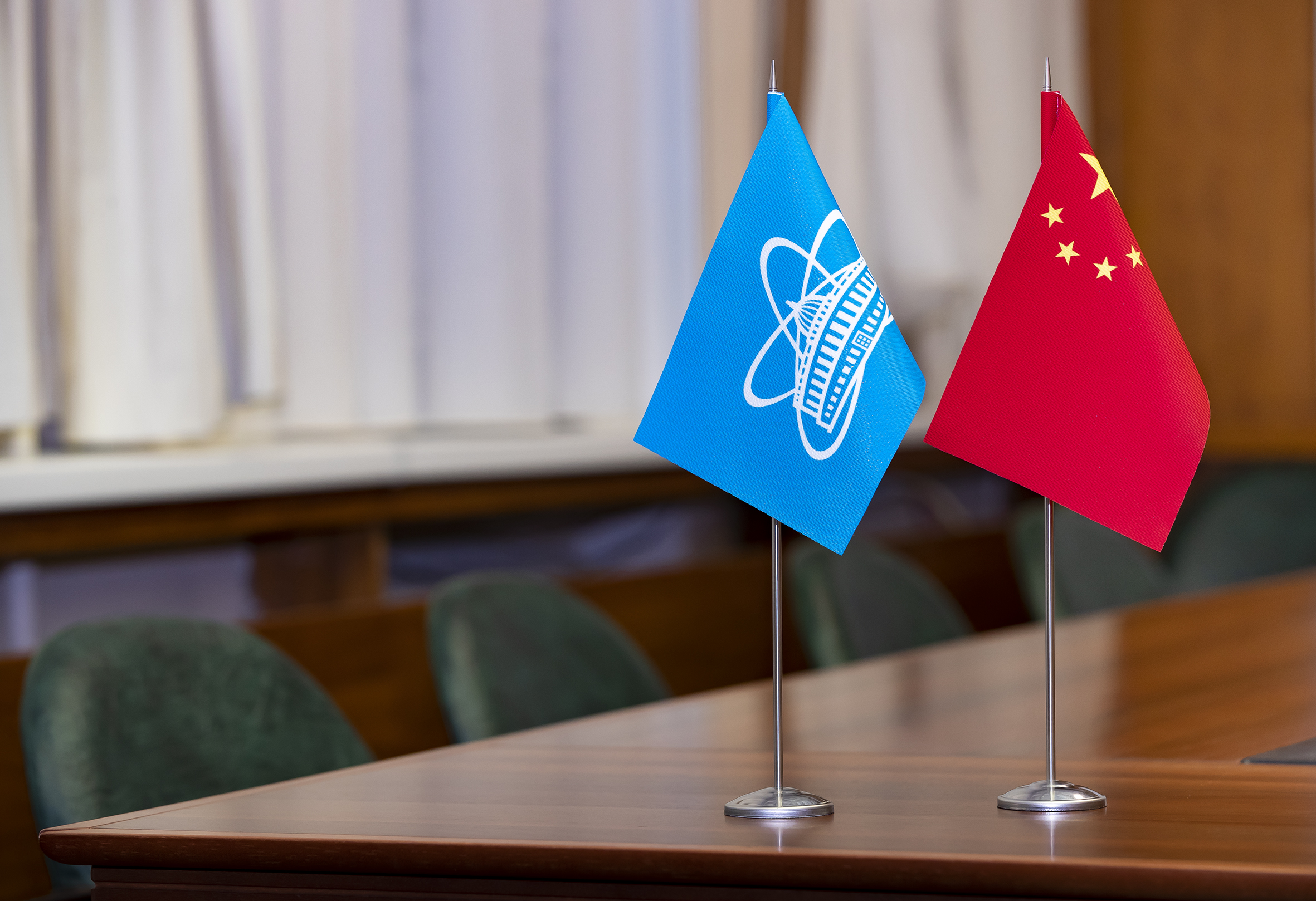Signing of JINR-China protocol: new level of cooperation
Media, 21 March 2023
The Protocol on Strengthening Cooperation in the Field of Basic Scientific Research was signed on 21 March. It establishes a framework for the further development of mutually beneficial collaboration between JINR and scientific and educational organizations of China. The signatories of the document were the Joint Institute for Nuclear Research, the Chinese Academy of Sciences, the Ministry of Science and Technology of the People’s Republic of China, and the Ministry of Science and Higher Education of the Russian Federation. The signing took place during the visit of President of the People’s Republic of China Xi Jinping to Russia.
“The signing of the Protocol was a reasonable step, as the pace and quality of cooperation between JINR and Chinese scientific organizations transformed into a transition to a new level of cooperation. I would like to emphasise that the signing initiative came from scientists. We held meetings with 24 Chinese JINR partner organizations, which unanimously supported the reaching of the next level of JINR and PRC research integration,” JINR Director Grigory Trubnikov commented on the event.

The document states that “modern science requires coordination of research activities carried out by various scientific teams and special attention from the states of the parties and interested international organizations towards the creation of favourable conditions which would promote international cooperation.” JINR continues to unite scientists from different countries to study the fundamental properties of matter. JINR is currently recognised as one of the leaders in world science, successfully implementing international integration in scientific research. The Protocol indicates the parties’ intentions to enhance the level of participation of the People’s Republic of China in JINR activities.
“The signing of the document, which took place on the eve of the JINR Foundation Day, is deeply symbolic. It is a big step towards China’s return to the JINR international scientific family. We and our Chinese colleagues have a lot of interesting joint work ahead of us on the entire line of research on the fundamental properties of matter,” JINR Director highlighted.
For the purpose of the organization and planning of joint activities under the Protocol and resolution of current tasks, a Joint Coordination Committee comprising an Expert Work Group will be established. The Committee will coordinate the major issues in the course of cooperation between the parties, determine the contribution of each party to common tasks, coordinate specific projects and lists of activities, as well as ensure their correspondence with the JINR Topical Plan. If necessary, the major issues will be submitted for consideration by the Sub-commission on Scientific and Technological Cooperation of the Russian-Chinese Commission for Preparation of Regular Meetings between Heads of the Governments. The Committee will consist of an equal number of representatives of JINR and China, including two co-chairs, one from each of the parties.
The Expert Work Group will also be composed of half of JINR researchers and half of scientists from Chinese research centres. Its tasks will include advising on specific areas and topics of scientific cooperation, as well as making proposals for joint projects for consideration by the Committee.
Meetings of the Committee will be held at least once a year. Meetings of the Expert Work Group can be held at any time, if necessary, both in person and online format.
“Our Institute has always had a special relationship with China, one of the founding states of our international organization. Indeed, China’s participation in the NICA Complex Megascience Project has been the flagship example of our cooperation in recent times. China is not just a partner country for us, but a state of deep integration with JINR,” Grigory Trubnikov highlighted.
The cooperation between JINR and China has a long history. Being one of the founding countries of JINR, the People’s Republic of China remained a part of the Institute until 1965. The longstanding fruitful cooperation between JINR and research organizations in China continues at the present time. In 2020, an agreement on China’s participation in the NICA Megascience Project was signed. Another important result of JINR’s cooperation with China was the launch of the first Superconducting Cyclotron at the Institute of Plasma Physics in Hefei, which was created jointly by China and Dubna.